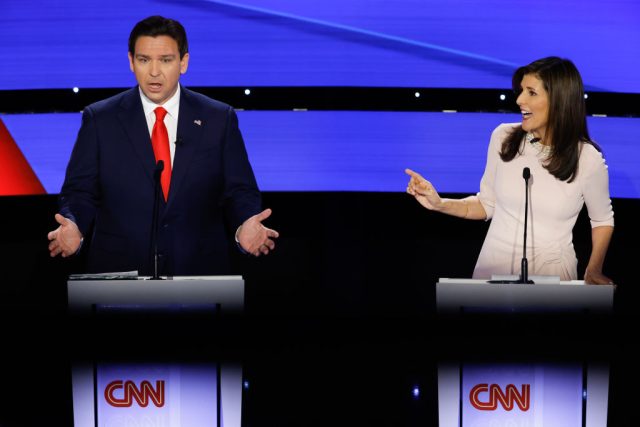
‘Haley and DeSantis have infinitely less to account and apologize for than Trump does’
Frank Bruni in The New York Times
If only “Nikki Haley and Ron DeSantis had shown a quarter as much contempt for Donald Trump as they did for each other,” says Frank Bruni in The New York Times. In Wednesday’s Iowa debate, the two Republicans fighting to be the Trump alternative in the GOP primaries criticized the former president for skipping debates, breaking promises, and fueling America’s divisions. But “their furious, puerile, and relentless attacks on each other” overshadowed those complaints.
‘Young voters are ripe for President Biden’s taking’
Victor Shi in USA Today
The “hungriest constituency” determines elections, says Victor Shi in USA Today. “Historic” Black turnout lifted Barack Obama to victory, twice. Enthusiastic women voters clinched Hillary Clinton’s 2016 Democratic nomination. The group President Joe Biden needs is “young voters.” Polls suggest he’s losing them, but he isn’t. He just needs to make them see his achievements on issues “from climate change to student loan forgiveness to gun violence,” and show he can play “hardball” with Republicans.
‘Donald Trump and his allies have come up short’
Norman Eisen, Richard W. Painter, and Joyce Vance in The Atlanta Journal-Constitution
The “sensational” allegation of impropriety against Fulton County, Georgia, District Attorney Fani Willis won’t let Donald Trump off the hook, say Norman Eisen, Richard W. Painter, and Joyce Vance in The Atlanta Journal-Constitution. One of Trump’s Georgia election-subversion co-defendants, GOP operative Michael Roman, claims Willis is romantically involved with the special prosecutor she hired, Nathan Wade. Even if the allegation were true, “a big if,” it wouldn’t justify Trump’s call for dismissal “under Georgia law.”
‘No one has a God-given right to have someone create “free” new treatments for their disease’
Christopher Jacobs in The Federalist
Pharmaceutical companies responded quickly to Medicare drug price controls Democrats “rammed through,” says Christopher Jacobs in The Federalists. The rules give companies limited years to market new medicines before price “negotiation” starts. “Companies whose drugs could treat multiple medical conditions, such as different types of cancer,” have started slow-walking some trials to get approval “for the broadest possible condition first,” to maximize profits. Patients who need new drugs for rare diseases are the “ultimate losers.”
Opinion, comment and editorials of the day






